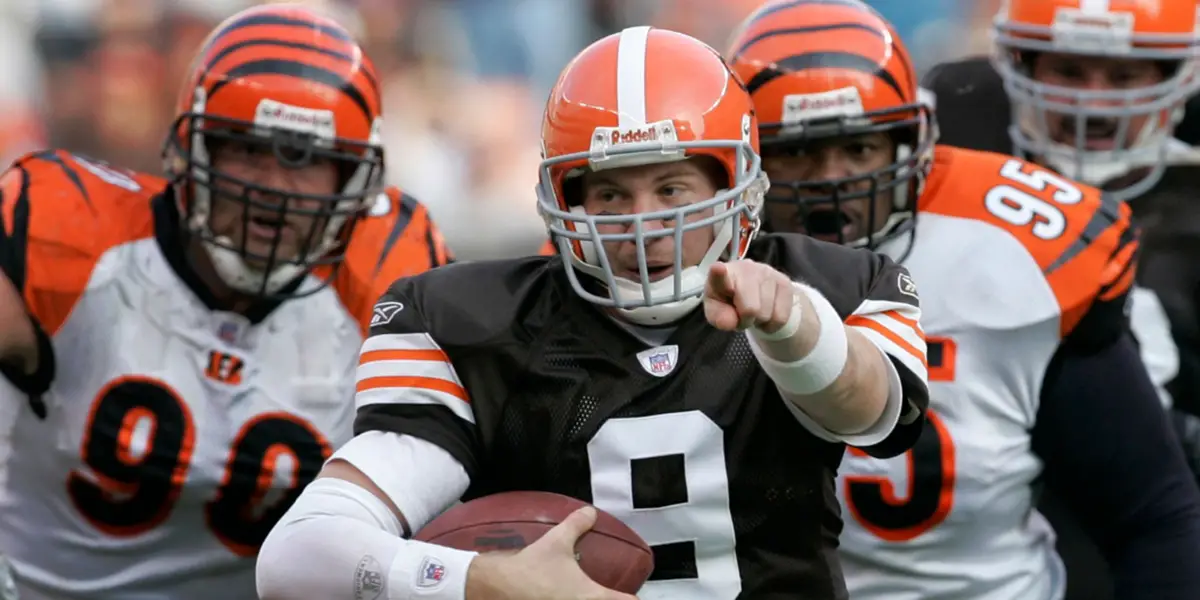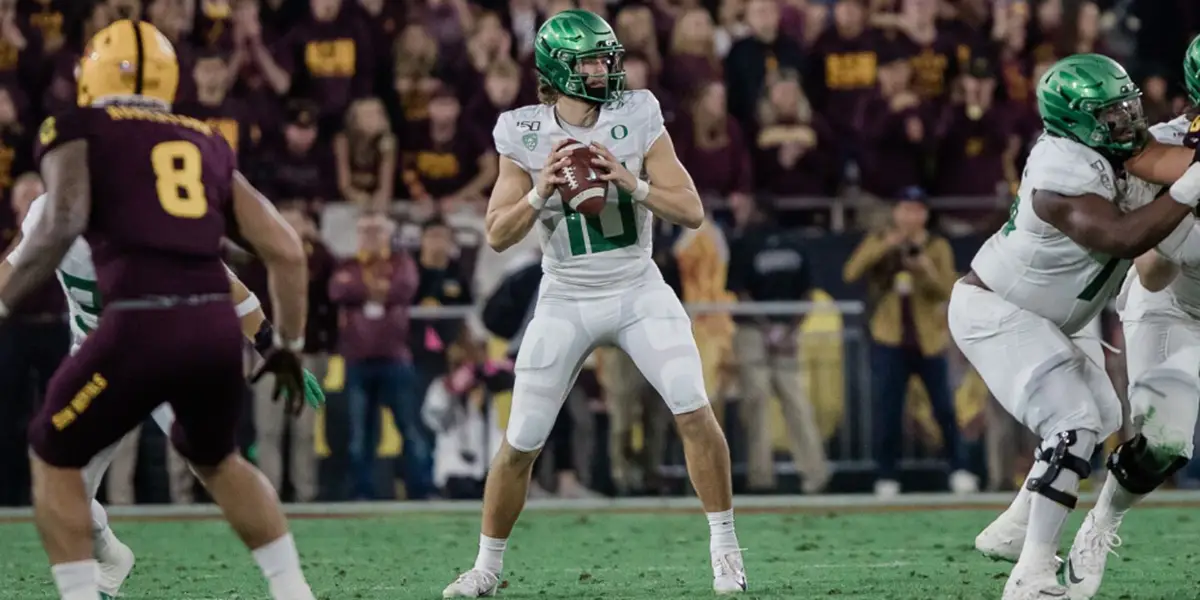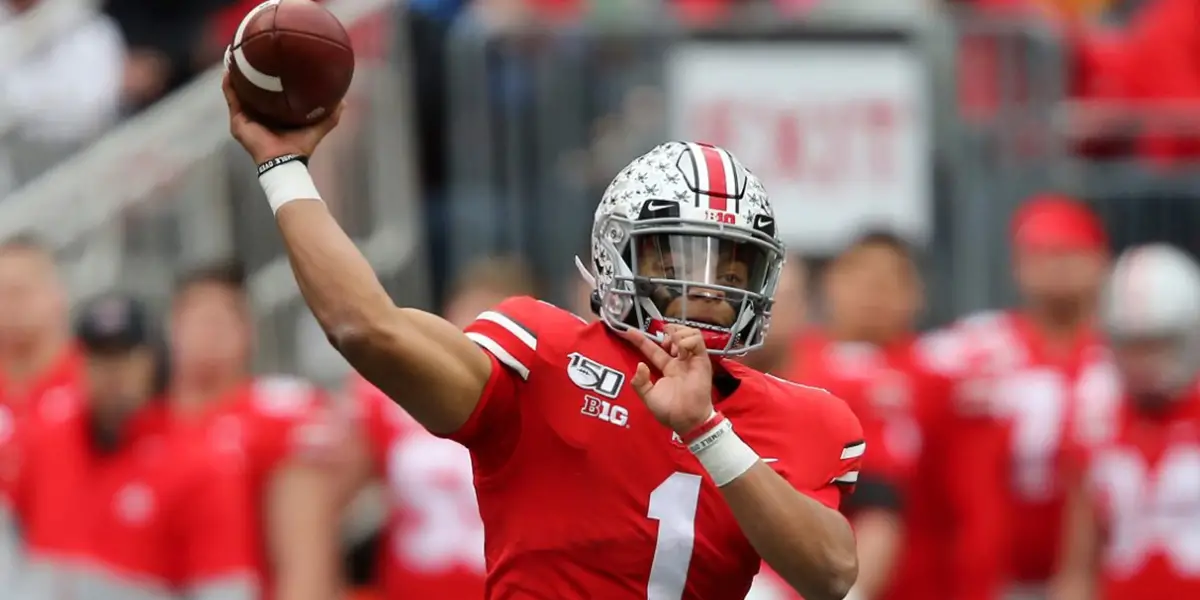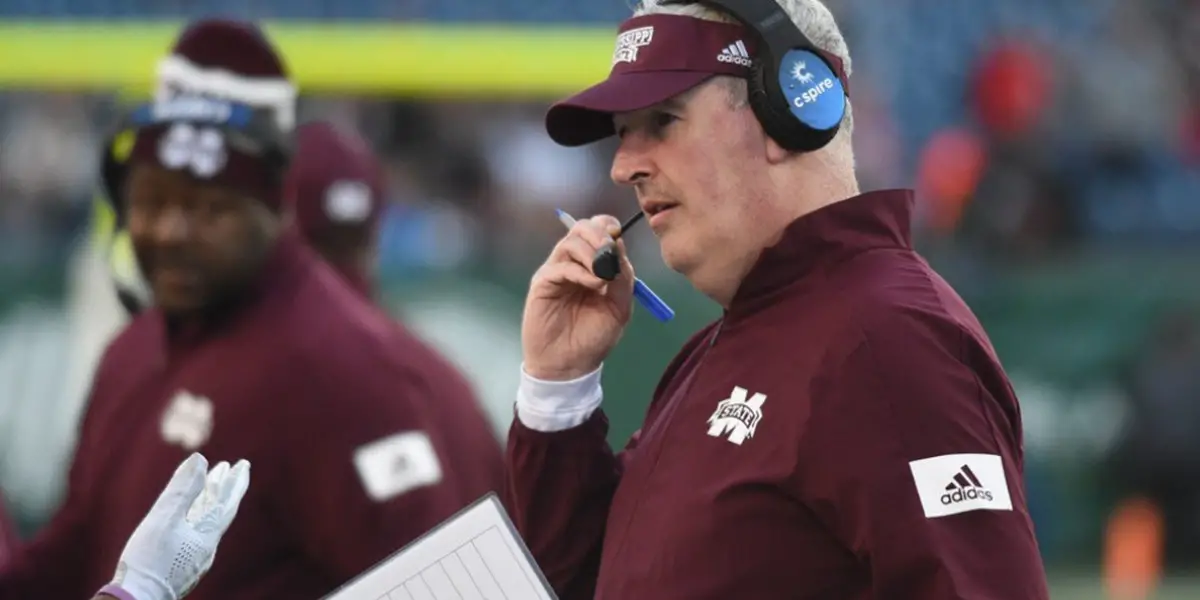The list of Oregon offensive coordinator Joe Moorhead’s accomplishments is a lengthy one. Behind his unique offensive system, he has engineered some of the most impressive turnarounds in the country over the past decade, most notably pulling the Penn State offense out of the stone age and into the 21st century. Analysts, coaches and players alike rave about Moorhead’s off-the-charts “Football IQ” and schematic brilliance.
However, although fans are most hopeful for a redesigned offense that gets more production out of the running game and eliminates the dreaded pistol formation, Moorhead’s scheme won’t be his biggest contribution to the Oregon offense. Whatever system the Ducks unveil this fall, the offense will be much improved. That’s because Moorhead has the extremely valuable ability to coach and develop quarterbacks at a high level — the most important part of building an offense.
At nearly every stop, Moorhead has significantly upgraded the production of the quarterbacks upon his arrival, and he hasn’t exactly had a stacked deck to work with. At Oregon, with legitimate, blue-chip talent at his fingertips, Moorhead will improve the quarterback play considerably. And with consistent, top-flight play from the quarterback position, the Oregon offense will find itself in the familiar spot of being among the best in the country.
Moorhead’s Track Record
Although his offenses are most remembered for their prolific rushing attacks, Moorhead has been a quarterback whisperer since the dawn of his coaching career.
In 2005, when Moorhead was promoted to Akron’s passing game coordinator, he was tasked with finding and developing a replacement for quarterback Charlie Frye, the most decorated passer in Akron history. The four-year starter broke 54 school records and was drafted in the third round of the NFL Draft when he finally exhausted his eligibility. Quarterbacks like Frye don’t find their way to Akron too often, so a significant offensive drop-off was expected.

Charlie Frye was drafted in the third round of the NFL Draft by the Cleveland Browns.
Although Frye’s successor didn’t quite match his historic feats, he more than held his own. Moorhead turned to Pitt transfer Luke Getsy, and all he did was throw for nearly 3,500 yards, 23 touchdowns and lead a passing offense that averaged over 275 yards per game. Getsy ended up breaking a number of Akron records himself under Moorhead, and in that 2005 season, his play was the driving force behind the program’s first and only conference championship and first-ever bowl appearance.
At his next stop, Moorhead faced an even greater challenge. He took over as Connecticut’s offensive coordinator and quarterbacks coach in 2009. His first order of business was to somehow groom a group of quarterbacks that had collectively thrown just five touchdowns to 17 interceptions in 2008.
Moorhead did his best to make chicken salad out of chicken scratch. He didn’t get groundbreaking play from either of the two quarterbacks he went with in 2009, but he managed to bring their play to respectability, which was enough to help the offense as a whole improve by a good margin. Rotating starters Zach Fraser and Cody Andres had combined to throw two touchdowns and nine interceptions in 2008. In 2009, under Moorhead, they managed a positive 16:13 touchdown-to-interception ratio, while averaging nearly 100 more yards per game through the air.
Moorhead cranked his offense into second gear when he finally got his hands on some legitimate quarterback talent in 2013. Michael Nebrich, a talented, athletic Virginia high school quarterback, followed Moorhead when he took over as head coach at Fordham, and Moorhead helped Nebrich become a star. In his first season as a starter, Nebrich put up the best numbers of any quarterback to ever play in Moorhead’s system, passing for over 4,000 yards and 35 touchdowns, with a completion percentage over 70%.

Michael Nebrich put up big-time numbers in Moorhead’s system.
Moorhead’s run-pass-option system was on full display, as the offense utilized Nebrich’s talents as both a runner and a passer. But when Nebrich suffered an ACL injury prior to the start of the 2014 season, Moorhead had to tailor his offense to compensate for the less mobile quarterback. The result? Only a 3,500-yard, 30-touchdown season by Nebrich, proving that Moorhead doesn’t need a runner to get effective play from the quarterback position.
Penn State’s Trace McSorley is Moorhead’s most famous success story. McSorley wasn’t the big-armed pro prospect that former starter Christian Hackenberg was, but that didn’t seem to matter much to Moorhead. McSorley went on to have the far more successful collegiate campaign, tossing 29 and 28 touchdowns, respectively, in his two seasons as a starter under Moorhead, and posting a passing efficiency rating over 150 in both seasons.

Moorhead helped Trace McSorley become a superstar.
All of these cases show just how capable Moorhead is at getting his quarterbacks to reach their ceilings. In some cases, those ceilings were relatively low, but he got the most out of the players he had to work with. That skill is one that the Oregon offensive coaching staff has been missing the past couple of seasons.
What This Means for Oregon’s Offense
Although football is billed as “the ultimate team game,” there’s a clear positional hierarchy, and quarterback is squarely at the top. Offensively, the quarterback is by far the biggest determinant of success. No matter how talented the rest of an offense is, or how clever its scheme is, the unit will struggle when push comes to shove without an effective signal caller. Vice versa, really good quarterback play can mask a lot of deficiencies.
For these reasons, quarterback development needs to be a priority for every program, and someone on the offensive coaching staff has to be able to get his quarterbacks to play up to their potential. It’s fair to question whether former Oregon offensive coordinator Marcus Arroyo had that ability.

Justin Herbert didn’t reach his full potential at Oregon.
Oregon fielded one of the most physically gifted quarterbacks in the country — Justin Herbert — for four straight seasons. On the surface, it looks as though Arroyo and company did a commendable job developing Herbert, as he had one of the best statistical careers in school history. But this is a case where the conventional stats are a bit misleading.
According to Pro Football Focus, Herbert actually regressed significantly in its grading system from 2017 to 2018 (the season in which Arroyo took over play-calling duties and assumed full control of the offense). And although he improved a bit in 2019, he still wasn’t nearly as dominant as he was in his 2017 campaign, in which he posted an elite grade. Although his conventional stats looked good in 2019 (35 passing touchdowns to just six interceptions and over 3,500 yards), they were significantly inflated by quick passes at or behind the line of scrimmage — a tactic that was likely employed by Arroyo due to the inconsistency of the downfield passing game — and by putting up big numbers against poor teams (Herbert threw 12 — almost 35% — of his touchdowns against Nevada and Montana).
But it doesn’t take a look at advanced metrics to conclude that Herbert never quite reached his ceiling while in school. With his unique arm talent and athleticism — a skill set that has NFL evaluators frothing at the mouth — and a sufficient supporting cast, Herbert should have been on the same level as Justin Fields, Trevor Lawrence, Tua Tagovailoa and Joe Burrow as one of the elite quarterbacks in the country in 2019. However, even die-hard Duck fans would agree that he was a notch below these similarly talented players. In fact, it’s arguable that Herbert wasn’t even the best quarterback in the conference; Utah’s Tyler Huntley gave him a run for his money.

First-year starter Justin Fields had a better year as a Redshirt Freshman than Herbert had as a Senior.
For whatever reason, Herbert never developed into the Heisman-contending player that he likely should have. That might not be entirely Arroyo’s fault, but as offensive coordinator and quarterbacks coach, it was his responsibility to get the very best out of Herbert, and he didn’t. Luckily, this is a problem that Oregon won’t have to worry about under Moorhead.
Moorhead’s extensive history of getting the best production possible from the quarterback position proves that he’s one of the best quarterback gurus in the country. With more quarterback talent in Eugene than he has ever had before, it’s safe to assume that Oregon’s starting quarterback will be one of the best in the country as long as Moorhead’s around. As a result, the offense as a whole will see the improvement that fans have been desperately clamoring for.
The loaded boxes in the running game, which lead to those rage-inducing one-yard dives up the middle, will disappear the second the Ducks unleash an offense in which the quarterback consistently challenges the defense on the second level. Furthermore, even if the running game gets stuck in a rut (which happens to every team at some point during the season), the offense will still be able to move the ball effectively behind a well-rounded passing attack.
Everything starts and stops with the quarterback position in the game of football. The teams that prioritize and are good at quarterback development tend to have the best offenses, and that’s exactly the skill that Moorhead brings to the table.
Moorhead is a quarterback whisperer in every sense of the term, and under his tutelage, Oregon quarterbacks and the offense as a whole will noticeably improve.
Joshua Whitted
Morgantown, West VirginiaTop Photo From Twitter
Related Articles:
Ducks Football 2026: Breaking Down Strengths And Weaknesses
These Ducks Will Have Monster Second Seasons as Starters
Oregon Football: Early 2026 Ranking Projections
FishDuck Foaming Over Upside of 2026 Diamond Ducks
Unbelievable...Same SEC Stuff, Different Day
Why Oregon Football Always Belongs in the National Conversation
Joshua is an adopted Duck fanatic, originally hailing from southwestern Pennsylvania. His love for the University of Oregon began as a young child when he became mesmerized by the flashy uniforms and explosive offenses of the Chip Kelly era, and now, he follows the team religiously. His fondest memory of the team is seeing De’Anthony Thomas race past Wisconsin defenders back in the 2012 Rose Bowl. A true football enthusiast, Joshua loves studying the intricacies of the game, and he aspires to become a professional sports journalist. Joshua now resides in Morgantown, West Virginia where he works in customer service. When he’s not watching Oregon replays, Joshua loves reading, writing, and spending time with his family. Contact: whittedjd@gmail.com

